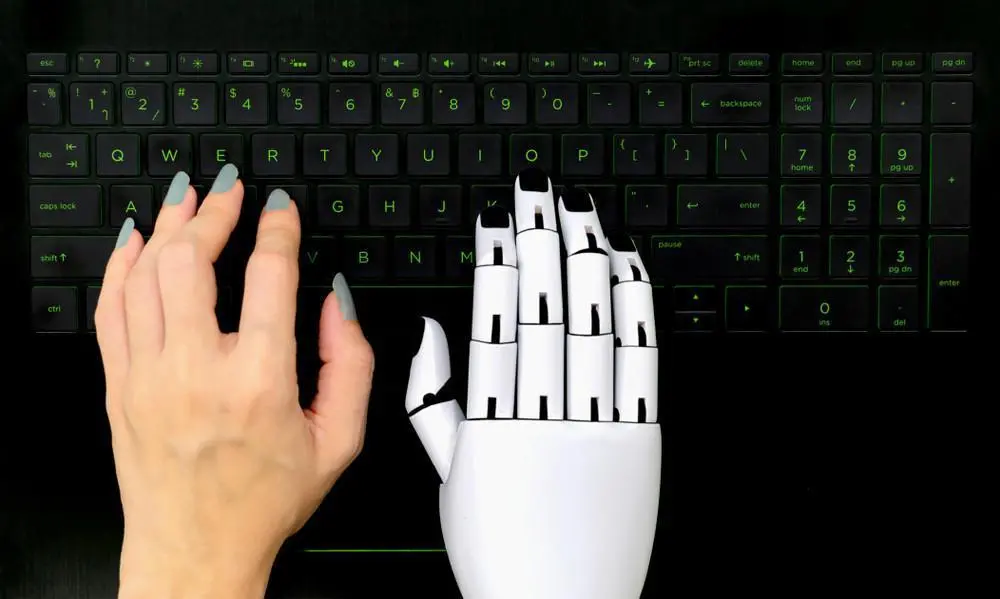Comments
- No comments found

There is a fresh preprint on arXiv,Consciousness in Artificial Intelligence: Insights from the Science of Consciousness, stating that "in addition to agency and embodiment, a further possible necessary condition for consciousness is that conscious systems must be self-producing, self-maintaining, “autopoietic” systems.
That is, they must sustain their existence and organisation through their own ongoing activity. This feature is characteristic of living things, which continually repair themselves and homeostatically regulate their temperatures and the balance of chemicals present in their tissues. Self-maintaining activity usually, perhaps always, involves “proto-cognitive” processes of sensing and responding. Advocates of this idea refer to concepts such as agency, selfhood and autonomy in arguing that self-maintenance is necessary for consciousness."
There are several descriptions of what it takes to have consciousness, but if consciousness is present, what does it do? If there is something consciousness does, can it be described as what consciousness is?
The paper explored six scientific theories of consciousness for their compatibility with 'computational functionalism' and how they may explain AI's 'indicator properties' for consciousness.
They agree that consciousness can be defined around the capability of having conscious or subjective experiences, and if AI may be able to do so. However, do humans have experience or know experience? The language of having experience seems like experience is something unrelated to knowing, but there is no description of consciousness that does not align with knowing.
All emotions, feelings, memories and thoughts are known. There are modulations of internal systems that are not in conscious awareness or get to the degree of knowing, but it does not mean that they break away from the same mechanisms from which knowing arises.
Consciousness is also described as what it feels like to be, like the famous example of a bat. But if it feels like something to be something, it means it is known of what it means to be something, or to be and to know, as the bat example explained.
Seeing the color red or feeling pain are knowing processes. Seeing the color red is not different from seeing the word red and knowing what red is as well. If someone misspells red and AI makes a correction or AI knows how red is spelled differently from yellow, can it not be said to have a low-level of knowing, as an outcome?
If someone is present somewhere, does the person not know that the person is there as the "I" and the person exists?
How much does a human collectively know? How much does an organism know? How much does AI know? That should summarize how AI is explored for consciousness. Consciousness does not require a body, if the mechanism that provides for that body is elsewhere. Consciousness also does not 'require' being or experience, if the mechanisms underlying both are also somewhere. It is the mechanism that matters, which is the interactions and features of electrical and chemical impulses of nerve cells, resulting in what consciousness does, or knowing. Being and experience are divisions of knowing. AI can have knowledge as an output, even if its silicon-based mechanismis different.
Humans know advanced languages. Humans know subjects. Humans have intelligence, rich creativity, complex planning and so forth. Humans also know emotions, feelings and thoughts.
Organisms close to humans know some of these but not others. AI seems to output what passes for knowing some memory aspects or subjects for humans.
Since humans are the highest, humans have 1, a total as a sum of a few divisions and several sub-divisions. Other organisms have lower totals, with their own divisions and subdivisions as well. AI has just one division, which is memory, copied from human intelligence. All that AI can do, with analysis, coding and so forth, can be maximally estimated for just that one division in comparison with the human minimum, in that category.
This is what can be explored along the neuroscience of consciousness. Consciousness is the rate of knowing for an organism, with humans having the highest rate at 1. Consciousness is the outcome of the interaction of the electrical and chemical impulses of nerve cells, with higher rates in the thalamus and the cerebral cortex. Conceptually, the human mind is the collection of all the electrical and chemical impulses of nerve cells, with their features and their interactions.
Predictive coding, processing or prediction error is explained by a feature of electrical impulses called early-splits or go-before, where some in the same set break from others, to interact with chemical impulses like did previously, such that if the input matches, great, if not, the incoming one goes in the right direction, or how perceptions change.
This is proposed to be mechanized by saltatory conduction, where electrical impulses leap from node to node, over myelin sheaths in myelinated axons, when some in a set concurrently relay ahead of others.
There are other features of sets of impulses including sequences or synaptic paths, a principal spot, drift or stairs, prioritization, which explains attention and so forth. Whatever is proposed to be a scientific theory of consciousness should explain the human mind, responsible for mental health, regulations, addictions, and others.
Compartmentalized theories of consciousness explaining one thing that cannot explain the human mind are already refuted for humans, and may find little usefulness to explaining sentience in LLMs.
Leave your comments
Post comment as a guest